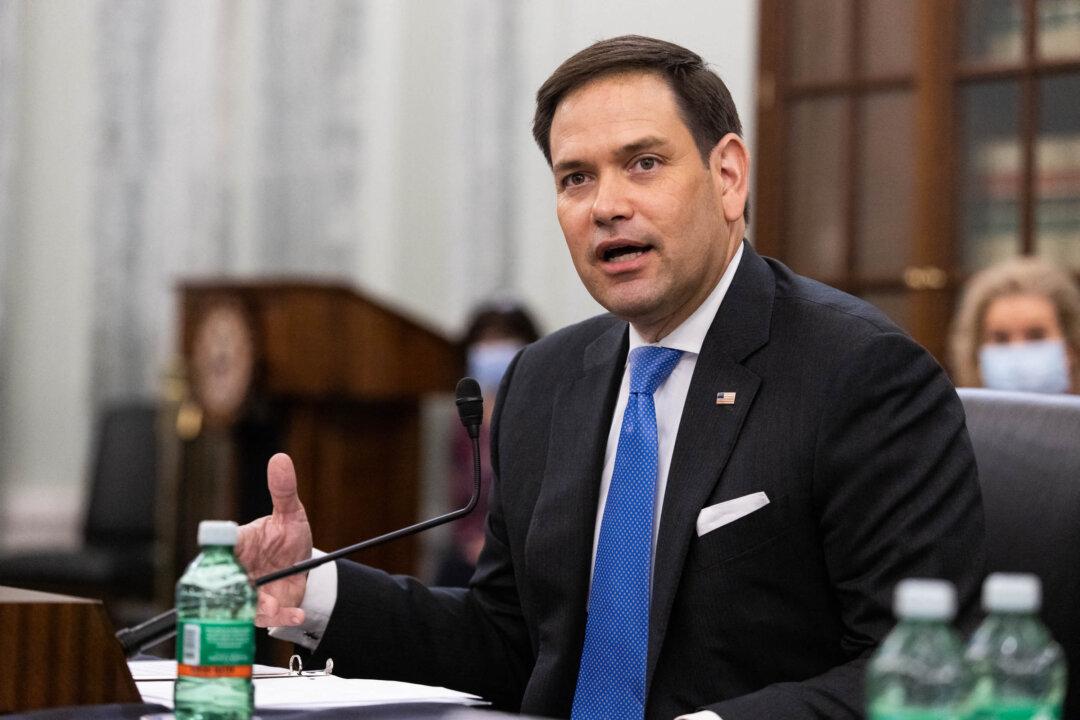Sen. Marco Rubio (R-Fla.), along with 15 other Republican senators, has introduced a bill that would authorize sanctions and other restrictions on Chinese officials and scientists unless Beijing allows for a “credible and comprehensive international investigation” into the origins of COVID-19 at suspected labs in China.
“For two years, the Chinese Communist Party (CCP) has stonewalled all efforts to uncover the true origins of COVID-19,” Rubio said in a Jan. 11 statement from his office. “We know the virus originated in China, however, the CCP’s attempts to obfuscate the truth has led to countless deaths and needless suffering worldwide.





